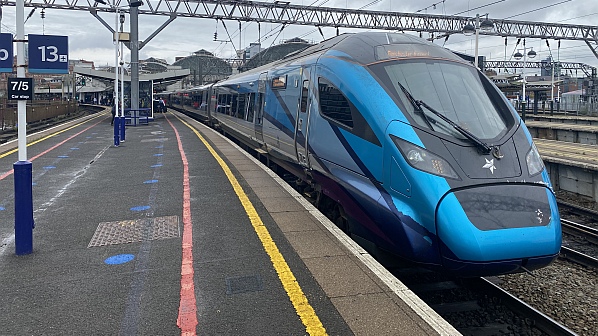THE Commons Transport Committee has asked the British government to revisit the evidence base for the decisions it has reached in drawing up the Integrated Rail Plan for the north and midlands (IRP), saying that alternative options have not been properly tested.
The IRP was published in November 2021, promising £96bn of investment in rail projects in the midlands and the north of England, including high-speed lines and the Northern Powerhouse Rail programme.
Following an inquiry which took evidence from the Department of Transport (DfT), Network Rail (NR) and local politicians, the committee has published a report on IRP that says it must be thoroughly reassessed “to ensure this once in a generation investment in rail is not a missed opportunity to address regional imbalances.”
The report says that key elements were left out of DfT’s analysis of the wider economic impact of the different options set out for Northern Powerhouse Rail, with the result that value for money and economic return cannot be compared and validated.
The committee calls for a full analysis of these wider economic impacts, and that a full benefit:cost ratio (BCR) should be produced for the different Northern Powerhouse Rail options.
If the results demonstrate that other options offer better value and outcomes for the taxpayer, the economy and local communities, the government must “grasp the nettle” and make the necessary changes.
The committee is concerned that the case for the IRP is based on a best-case scenario which may not come to pass. The promised journey times may not be feasible and the issue of how to increase capacity for local passenger services and freight has been overlooked.
The report says that the original purpose of Northern Powerhouse Rail, to support economic development of the north of England by connecting its major cities, is at risk due to decisions taken by DfT which have disappointed cities such as Leeds and Bradford.
Revised plans for the eastern leg of HS2 Phase 2b will see the planned Birmingham - Leeds route terminate at East Midlands Parkway near Nottingham. The report says that project promoter HS2 Ltd was unable to tell the inquiry how much the revised project would cost.
The committee therefore calls on DfT to publish an updated BCR for the entire HS2 project by March 2023, including a direct comparison between the original and revised plans for the eastern leg of Phase 2b.
Work is urgently needed to demonstrate the government’s commitment to high-speed connections to Leeds, the report says. The committee also asks the government to commit to supporting the redevelopment of Leeds station by 2035.
“The business case of HS2 was based on it going east to Leeds,” says Mr Huw Merriman, chair of the Commons Transport Select Committee. “Now, it stops in the East Midlands without any understanding of how much money is saved.”
“The government must demonstrate the rationale for its decisions. An investment of this substantial sum must be based on the best evidence and the best value for money,” Merriman says. “It must bring the greatest overall benefit to rail services, the economy, environment and communities across the north and midlands.”
“We cannot afford this to be an excuse to delay the plans already committed in the IRP,” says Mr Justin Moss, chair of the Railway Industry Association (RIA) North. “We continue to call for the HS2 eastern Leg and Northern Powerhouse Rail schemes be reinstated in full, as only by doing so will the full benefits of both schemes be realised.”
For detailed data in rail projects in Britain and around the world, subscribe to IRJ Pro.

